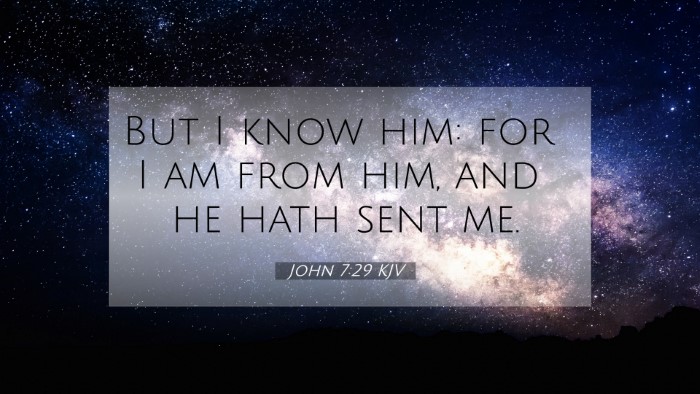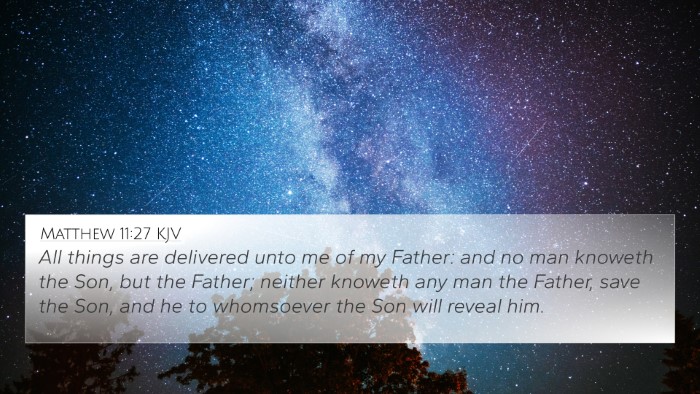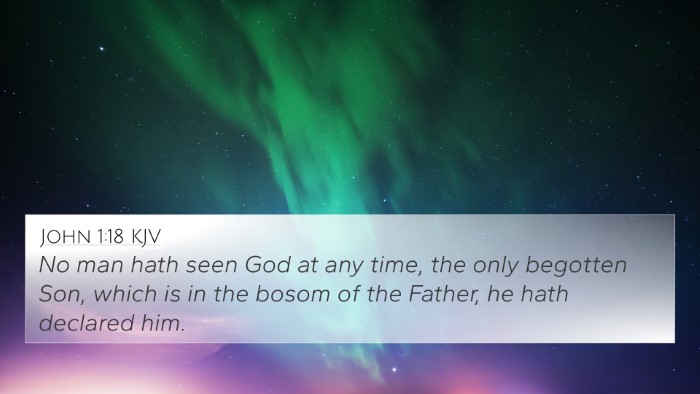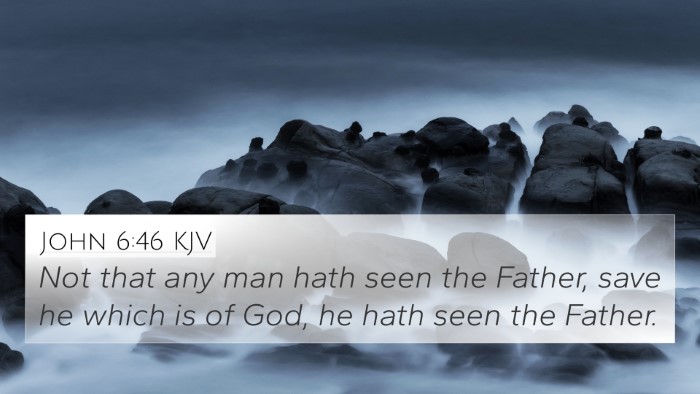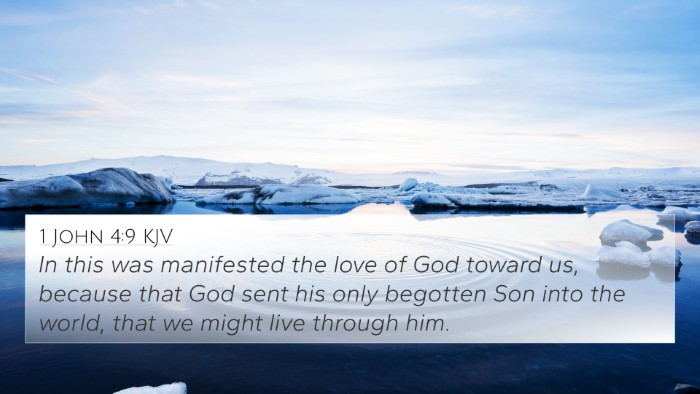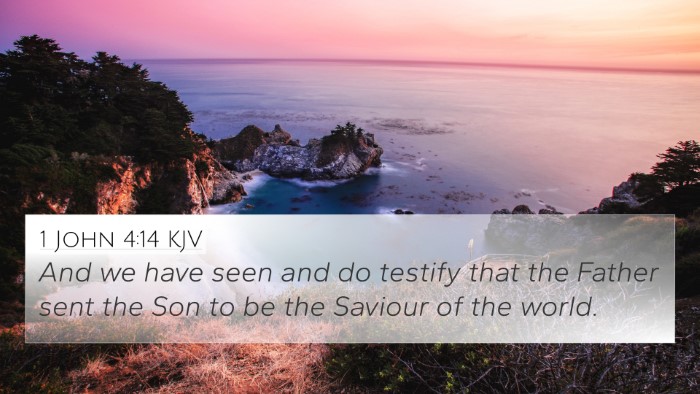Understanding John 7:29
John 7:29 states: "But I know him: for I am from him, and he hath sent me." This verse encapsulates the essence of Jesus Christ's relationship with God the Father and presents key theological concepts regarding His divinity and mission. Below is a summary of several commentator insights.
Commentary Insights
Matthew Henry
Matthew Henry emphasizes that the assertion "I know him" signifies an intimate understanding and relationship with God. Jesus contrasts Himself with those who do not truly understand God, demonstrating His unique position as the Son. Henry points out that Jesus' knowledge of God comes from His divine origin: "for I am from him," illustrating that Christ's nature is of God and He is not merely a prophet or a teacher but the very embodiment of God's will.
Albert Barnes
Albert Barnes notes the implications of Jesus representing God's authority as one sent by Him. He underlines the distinction between Jesus and the religious leaders of the time, who lacked genuine knowledge of God. According to Barnes, Christ's claim to be sent by God signifies not only His mission but also the divine validation of His teachings and work. He argues that this verse serves to highlight the relationship between Jesus and His followers, marking His role as the divinely appointed messenger.
Adam Clarke
Adam Clarke elaborates on the phrase "for I am from him," pointing out that it denotes the pre-existence of Jesus. Clarke stresses that the knowledge Jesus possesses about God is not derived from study or human teaching but is intrinsic to His being. He remarks on Jesus' authority and suggests that His mission is to reveal God to humanity. Clarke enhances the understanding of this verse by linking it with prophetic traditions in the Old Testament, which also speak of God sending His chosen ones.
Bible Cross References
John 7:29 resonates with various other scripture passages, illustrating connections and thematic relationships throughout the Bible. Here are notable references:
- John 1:18: "No man hath seen God at any time; the only begotten Son, which is in the bosom of the Father, he hath declared him." This verse emphasizes the unique role of Jesus in revealing God.
- John 6:46: "Not that any man hath seen the Father, save he which is of God, he hath seen the Father." This further corroborates the divine knowledge Jesus possesses.
- John 10:30: "I and my Father are one." This captures the unity and intimate relationship between Jesus and the Father.
- Luke 10:22: "All things are delivered to me of my Father: and no man knoweth who the Son is, but the Father; and who the Father is, but the Son." This highlights the distinct relationship and the exclusivity of their knowledge of one another.
- Matthew 11:27: "All things are delivered unto me of my Father: and no man knoweth the Son, but the Father; neither knoweth any man the Father, save the Son, and he to whomsoever the Son will reveal him." This further emphasizes the revelatory role of Christ.
- John 8:55: "Yet ye have not known him; but I know him: and if I should say, I know him not, I shall be a liar like unto you: but I know him, and keep his saying." This creates a contrast with those who do not truly know God.
- John 5:36: "But I have greater witness than that of John: for the works which the Father hath given me to finish, the same works that I do, bear witness of me, that the Father hath sent me." This verse connects Jesus' works to His divine mission.
- Hebrews 1:1-2: "God, who at sundry times and in divers manners spake in time past unto the fathers by the prophets, hath in these last days spoken unto us by his Son..." This indicates the progression of revelation through Christ.
- Colossians 1:15: "Who is the image of the invisible God, the firstborn of every creature." This reinforces Jesus as the visible manifestation of God.
Conclusion
John 7:29 presents a profound declaration of Jesus' identity as the one truly sent from God. Through the insights derived from notable public domain commentaries, we see the interconnectedness of Biblical texts that elucidate the nature of Christ's relationship with the Father, His role in revealing God to humanity, and the divine authority behind His teachings. By employing tools for Bible cross-referencing and thematic Bible verse connections, we can deepen our understanding of this crucial scripture and its implications for faith and theology.
Additional Resources for Bible Study
- Tools for effective Bible cross-referencing
- Bible concordance for finding related verses
- Bible cross-reference guide for deeper insights
- Methods for conducting cross-reference Bible studies
- Utilizing a Bible reference resource for sermon preparation
By utilizing these resources, readers can enhance their engagement with Scripture and discover rich connections between Bible verses that illuminate the overarching themes present in God's Word.


